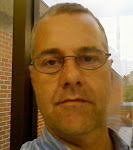It was basically a debate between Keen on the pro journalism side, and Brody and Harfoush on the user-generated content side.
The main point of Keen's book and his remarks were that treating user-generated content the same as professionally created journalism dumbs down society. ignorance=arrogance=bad taste=mob rule
He recommended journalists get even more arrogant, asset their claim to professional reporting and presentation.
Brody's site is one of the largest and most successful user-generated content sites, with some 130,000 contributors all over the world: how does NowPublic pay its contributors? "we pay them in love."
He conceded they they are corruptible as anyone, but said that the wisdom of the crowd will expose shenanigans before too long.
Keen (who thinks letting everyone be a journalist is a very bad thing for society): "Everyone can be eyes and ears they can all contribute but can they all be journalists? No."
Brody: No more trusted news brands (dominating the stories).
search is driving the process. most people are looking at 12-16 news sites per day (he said per story, but he meant per day
Keen: don't do away with (traditional) memory. the only way to preserve your authority is to be authoritative.
Brody: "Your children will not read newspapers. News brands will survive."
(he cited recent McKinsey study on news consumer habits. I ned to look that up.)
Harfoush - quality and trustworthiness is down, access and immediacy is up.
It's all about speed and different perspectives.
Keen: It doesn't really matter what kids think about news.
Brody: They (users) are a network of eyes and ears that journalists can use.
hyperlocality has given way to hyperpersonality. that is, to news products people customize for their own needs, interests.
The big change will be he ubiquity of GPS, so you can locate people and where their cell-phone cameras are taking the videos.
Journalists can still do what they do best:
- storytelling
- information packaging (putting it all together, that is)
- analysis
He was right about that.
Keen predicted that the next pendulum swing will be towad greater expertize, greater authority. that is, the experts will replace the amateurs.




No comments:
Post a Comment